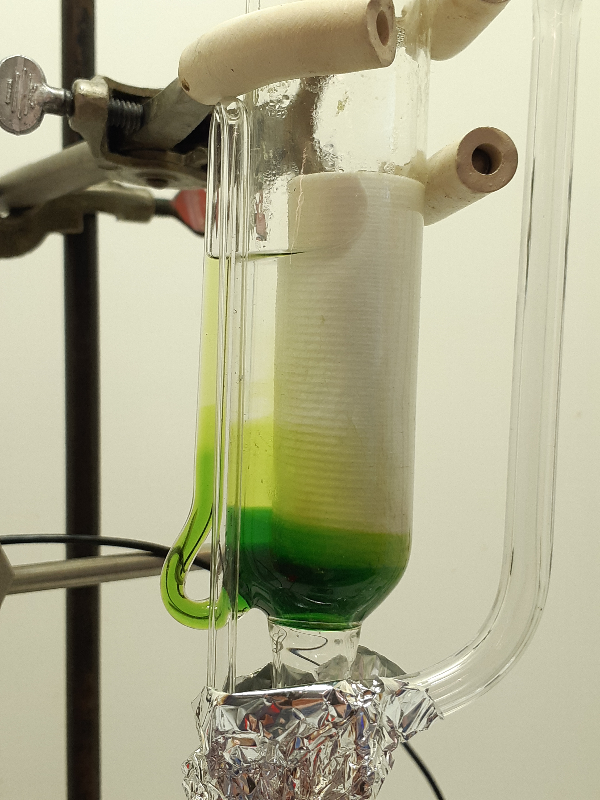This course covers the most important polymerization reactions, focusing on their reaction mechanisms and kinetic aspects. The most common polymerizations include step growth polymerization and chain polymerization (radical, ion, and coordination polymerization). The course also includes more advanced polymerization techniques such as copolymerization, controlled radical polymerization, heterogeneous polymerization and ring-opening polymerization. Polymerization principles of bulk, solution, suspension, emulsion, and interface polymerization are discussed and compared. Each method presentation will cover the full spectrum from the theoretical understanding of detailed experimental procedures to examples of functional materials prepared by the specific method. Aside theory, the course also focus on calculations and predictions of important parameters and outcomes of polymerizations, including the degree of polymerization, average molecular weight, average functionality, gel point, kinetic chain length, rate constants, chain transfer, copolymerization composition etc.
KF2130 Polymer Chemistry 7.5 credits

In this course are different aspects of polymer chemistry discussed.
Polymer chemistry is a multidisciplinary science that deals with the chemical synthesis and chemical properties of polymers. This polymer chemistry course covers the synthetic techniques in common use in both academic and industrial laboratories for making a wide variety of polymers. The challenges and latest developments in producing established thermoplastics and elastomers from renewable sources to obtain sustainable polymeric materials are discussed.
All major synthetic methods are considered: step growth polymerization, chain polymerization including ionic polymerization, radical polymerization, copolymerization, coordination polymerization and ring-opening polymerization. Synthetic reactions on formed polymers are also presented as tools to modify the polymer properties.
Emphasis is placed on how the various synthetic methods are used to control structural features such as molecular weight, branching, crosslinking, and crystallinity.
Information per course offering
Information for Autumn 2026 Start 26 Oct 2026 programme students
- Course location
KTH Campus
- Duration
- 26 Oct 2026 - 11 Jan 2027
- Periods
Autumn 2026: P2 (7.5 hp)
- Pace of study
50%
- Application code
10184
- Form of study
Normal Daytime
- Language of instruction
English
- Course memo
- Course memo is not published
- Number of places
Min: 12
- Target group
- Open for all students as long as it can be included in your programme.
- Planned modular schedule
- [object Object]
- Schedule
- Schedule is not published
- Part of programme
- No information inserted
Contact
Course syllabus as PDF
Please note: all information from the Course syllabus is available on this page in an accessible format.
Course syllabus KF2130 (Autumn 2023–)Content and learning outcomes
Course contents
Intended learning outcomes
After completing the course the student should
To pass the course be able to:
- Explain the general reaction course and reaction mechanism for common polymerizations
- Describe and compare the polymerization principles
- Calculate parameters and outcomes of polymerizations
- Evaluate polymerizations from a green chemistry perspective
- Practically perform different types of polymerizations
- Present and evaluate laboratory assignments in writing
To achieve higher grades than D be able to
- Explain the general reaction course and mechanisms for more advanced polymerizations
- Describe and compare the polymerization principles
Literature and preparations
Specific prerequisites
Bachelor's degree in engineering or in sciences including 50 credits in chemistry or chemical engineering. English B/6.
Recommended prerequisites
KF1010 Polymer technology with cellulose technology or KF1040 Polymer technology for the CL programme and three years of studies in chemical science and engineering at bachelor level, or equivalent
Literature
Examination and completion
Grading scale
Examination
- TEN2 - Written exam, 4.5 credits, grading scale: A, B, C, D, E, FX, F
- LAB2 - Laboratory Course, 3.0 credits, grading scale: P, F
Based on recommendation from KTH’s coordinator for disabilities, the examiner will decide how to adapt an examination for students with documented disability.
The examiner may apply another examination format when re-examining individual students.
If the course is discontinued, students may request to be examined during the following two academic years.
Other requirements for final grade
Active participation in all compulsory activities as specified in Course information.
Examiner
Ethical approach
- All members of a group are responsible for the group's work.
- In any assessment, every student shall honestly disclose any help received and sources used.
- In an oral assessment, every student shall be able to present and answer questions about the entire assignment and solution.
Further information
Course room in Canvas
Offered by
Main field of study
Education cycle
Supplementary information
Will replace 3E1141 and the course KF2210